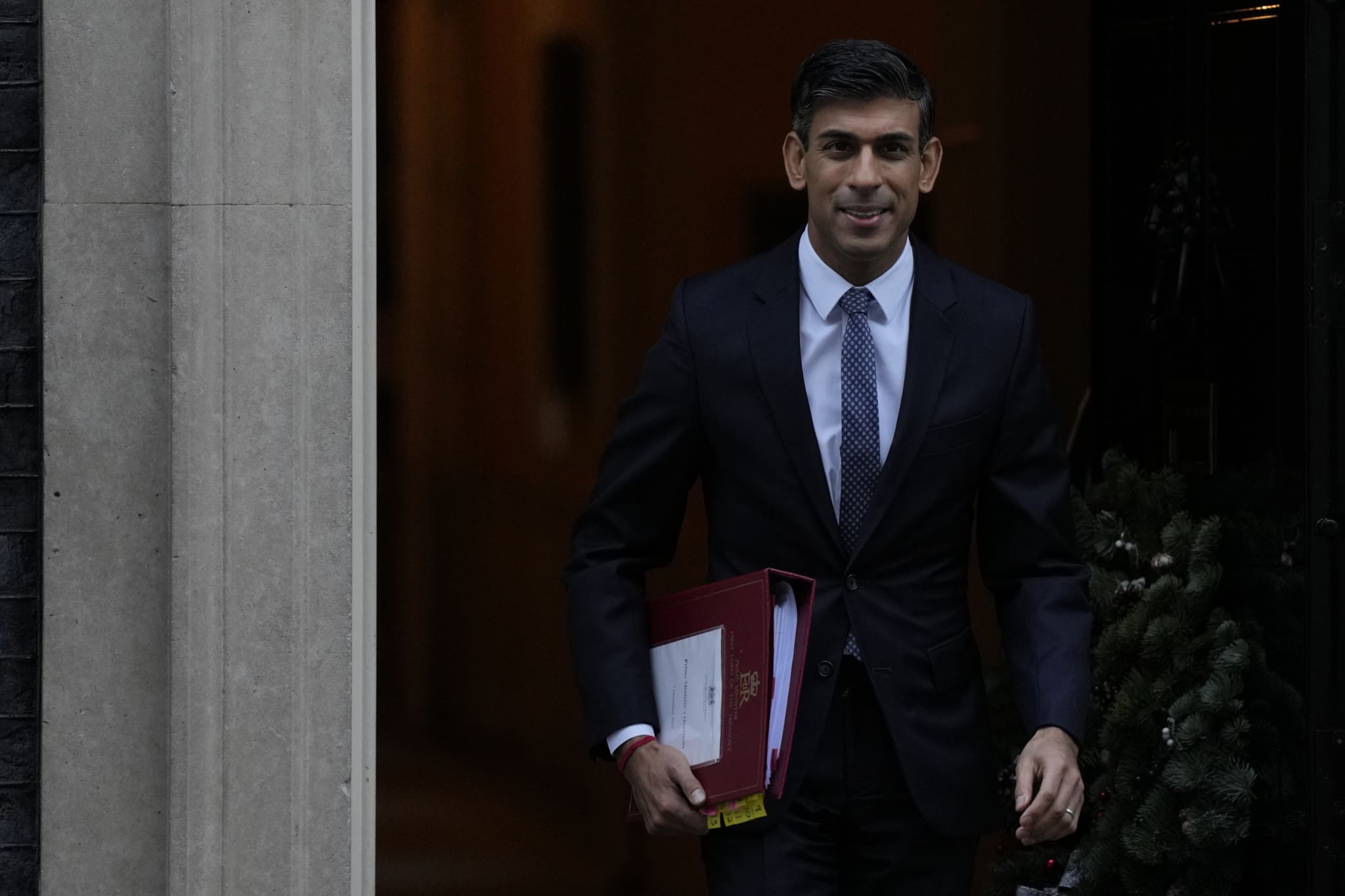British Prime Minister Rishi Sunak announced on Tuesday a new five-point plan designed to tackle the country’s ongoing migration crisis.
In a statement given to lawmakers in the House of Commons, Sunak vowed to speed up asylum claims with more resources, recommitted to the country’s offshore processing sites in Rwanda, and pledged to expedite deportation of those for whom asylum is neither appropriate nor necessary.
With more than 42,000 people using unlawful measures to reach the U.K. via small boats in the English Channel, the country’s asylum system has become saturated, with genuine asylum applicants facing more than a year to have their claims assessed. Meanwhile, tens of thousands of predominantly male migrants, more than a quarter of whom originate from Albania and pass through multiple safe countries to reach Britain, are gaming the system.
Sunak told lawmakers the issue of illegal immigration possesses a “complex moral dimension” in which the government was required to balance its duty to “support people in dire need with the responsibility to have genuine control over our borders,” a matter he claimed to understand “provokes strong feelings.”
He told the Commons that the primary question involved in tackling the crisis was that of “fairness.”
“It is unfair that people come here illegally, unfair on those with a genuine case for asylum when our capacity to help is taken up from people coming through and from safe countries, unfair on those who migrate here illegally when others cheat the system, and unfair on the British people who play by the rules when others come here illegally and benefit by breaking those rules.”
British Prime Minister Rishi Sunak
“Enough is enough,” the Conservative party leader told colleagues.
Sunak claimed the current “global asylum framework has become obsolete,” and with more than 100 million people displaced globally, and with the world becoming ever more unstable, “the numbers displaced will only grow.”
He also acknowledged that “hostile states are using migration as a weapon on the very borders of Europe.”
Britain has a “proud history of providing sanctuary to those in need,” Sunak said, reminding colleagues that in just the past year Brits had opened their homes and their hearts to those from Hong Kong, Afghanistan, and Ukraine. “No one can doubt our generosity of spirit,” he added.
He admitted, however, that “far too many of the beneficiaries of that generosity” were the wrong people, not those who are fleeing war zones or facing persecution, but economic migrants originating from and traveling through safe countries, and others more sinister who are organizing safe passage into the U.K. for “ruthless criminals.”
He also accepted that people arriving via small boats across the English Channel are “mostly men” and not the women and children often highlighted by the mainstream media.
Sunak committed to a five-point plan designed to tackle the problems identified.
The first step will be to establish a new permanent unified small-boats operational command, including input from the National Crime Agency (NCA), as well as military and civilian capabilities.
He claimed the policing of the English Channel to date had been “too fragmented,” and said the new command center, in which there will be 700 new staff, will bring cohesion and the implementation of new technology such as drones to better assist those in the Channel and identify and prosecute gang-led boat pilots.
He also announced that NCA funding for tackling organized immigration crime in Europe will be doubled.
With the extra resources from step one, step two will see immigration officers freed up to “go back to enforcement,” enabling tthem to increase the frequency of raids on suspected illegal immigration hubs in Britain by 50 percent.
He also vowed to restart data-sharing to prevent illegal migrants from being able to set up bank accounts, which helps their ability to live and work in Britain.
Third, Sunak said it was “appalling” that British taxpayers are currently spending £5.5 million every day on housing migrants in luxury hotels, and vowed to find a range of alternative sites, including disused holidays parks and former student accommodations. The prime minister revealed government officials have already identified several sites that are capable of accommodating tens of thousands of people and anticipated these would amount to half the cost of using hotels.
“We need to process claims in days or weeks, not months or years,” Sunak told colleagues, announcing he would be doubling the number of asylum case workers to ensure that current processing times for applications are reduced. He also announced efficiency measures to reduce red tape and paperwork and expected the current asylum backlog to be abolished by the end of next year.
Lastly, and “most significantly,” Sunak said, he announced a new agreement with Albania, where almost a third of arrivals this year originate from, revealing British immigration officials will be placed in Tirana airport to proactively deter illegal immigration. He also explained new guidance would be given to case workers “to make it crystal clear that Albania is a safe country,” and pledged to increase the modern slavery threshold for Albanians who are misusing the legislation to delay deportation and hold up the system.
“The vast majority of claims from Albania can simply be declared clearly unfounded, and those individuals can be swiftly returned,” Sunak said, adding that thousands of Albanians will be returned home over the coming months.
“We’ll keep going with weekly flights until all the Albanians in our backlog have been removed,” he added.
With regard to the future deterrence of spurious asylum claims, Sunak recommitted to the agreement signed with Rwanda, which will see offshore processing of asylum claims; as to those who are ineligible for asylum but unable to be returned to their country of origin, they will stay in Rwanda so they can “start a new life there.”
The prime minister also announced new legislation would be proposed next year to ensure that those who enter Britain illegally will not be allowed to remain there, and laws will be changed to prevent people from exploiting the system and finding legal loopholes to frustrate and delay deportation orders and remain in the country indefinitely.






